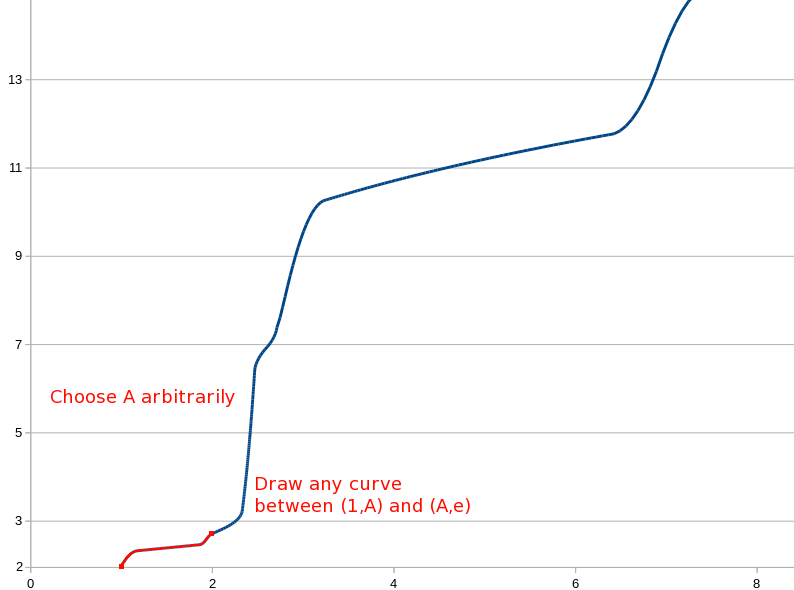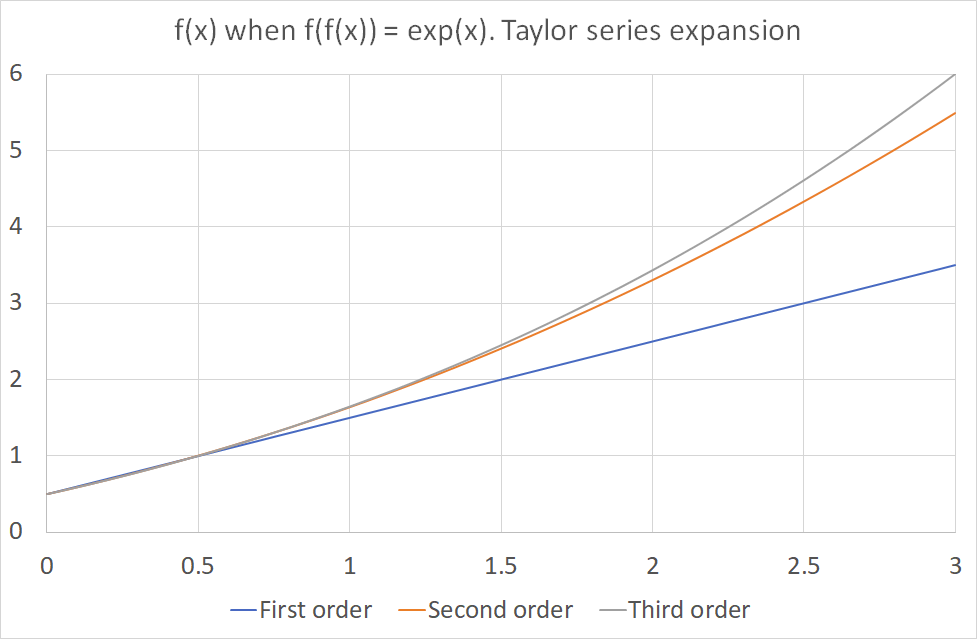Recently it was asked by mollwolfumble: what is the name of the special function g(x) such that g(g(x)) = exp(x).
I said that there an an infinite number of such functions but did not elaborate, so here are some more details.
Under such a function, if g(1) = A, then g(A) = e.
We can arbitrarily pick an A. Let’s say:
g(1) = 2, so g(2) = e
We can now pretty much arbitrarily define values of g for values of x from 1 to 2.
Note that exp(x) increases monotonically and this goes much easier if we choose g(x) such that it also does and does not exceed exp(x).
g(1.25) = 2.3, so g(2.3) = 3.4903…
g(1.8) = 2.6, so g(2.6) = 6.0496…
Now if I desire this to be a continuous function then I’ll make sure that as x->2, g(x) approached e.
g(1.99) = 2.7, so g(2.7) = 7.3155…
And if I require other kinds of smoothness at the bounds (for instance, require continuous derivatives) then I can also allow for that. In so doing, we have also created the function over the domain from a to e, and by extension the rest of the infinite domain.
So that’s basically it. Choose a value A so that g(1) = A and g(A) = e, and then you have a free hand to draw a function over the domain from 1 to A, which will then propagate over the infinite domain.
As well as for exp(x), this trick should work for any other “well-behaved” monotonic function.

